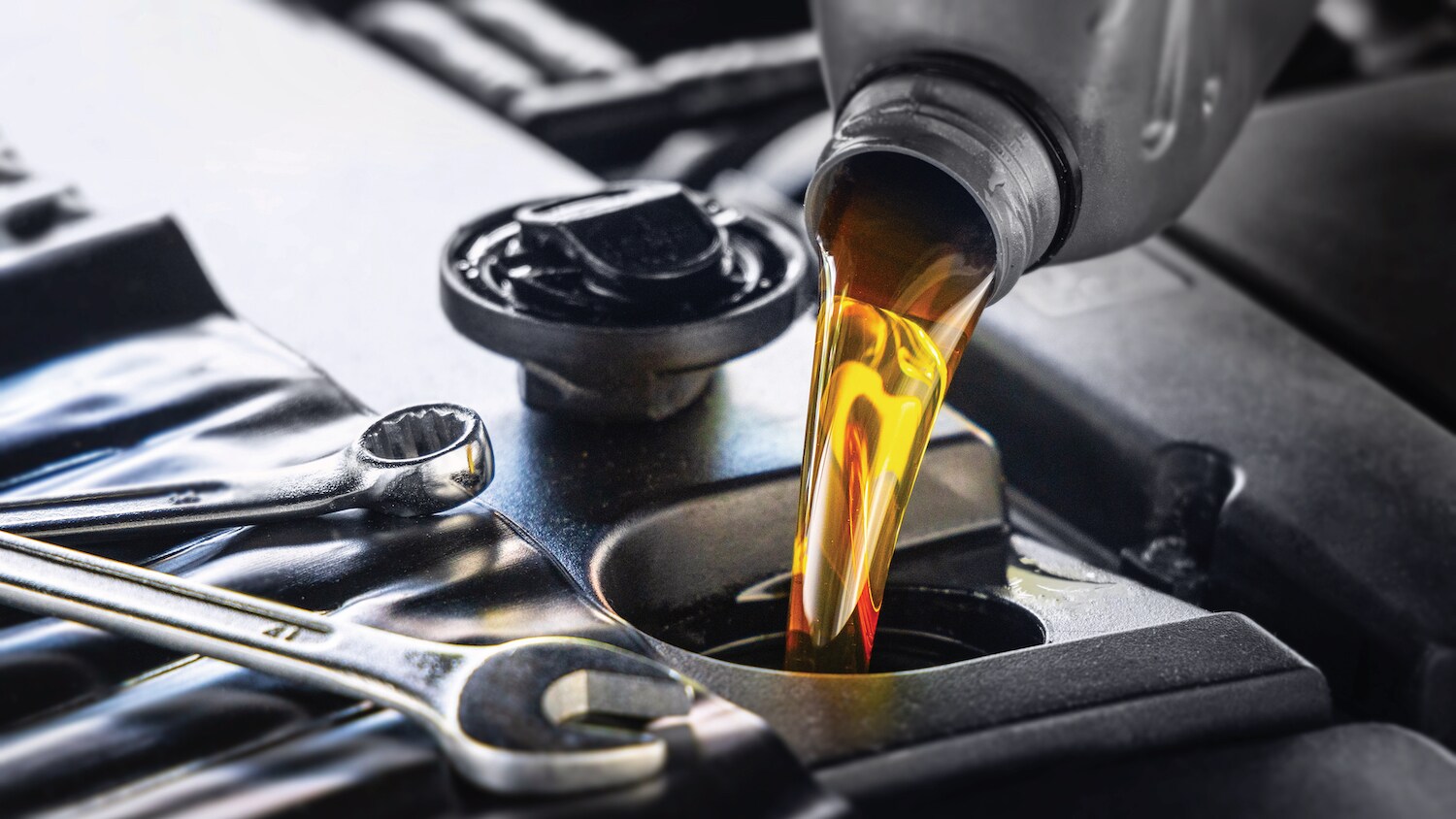 By Anthony Toronto | August 13th, 2025 | 3 min read
By Anthony Toronto | August 13th, 2025 | 3 min read
- Research Center /
- Car Maintenance Research Articles /
- Synthetic Oil vs. Regular Oil: Which is Right for Your Vehicle?
Synthetic Oil vs. Regular Oil: Which is Right for Your Vehicle?
 By Anthony Toronto | August 13th, 2025 | 3 min read
By Anthony Toronto | August 13th, 2025 | 3 min read
Choosing the right oil for your vehicle isn't always straightforward. Synthetic and regular oils each offer unique benefits and drawbacks, so how do you know which is best? Let's explore the essential differences to help you confidently select the perfect oil type for your vehicle and driving habits.
Synthetic Oil vs Regular Oil: What's the Difference?
What is Synthetic Oil?
Synthetic oil is engineered in laboratories, crafted from chemically modified compounds to provide superior performance and protection. It's designed specifically to offer consistent lubrication and maintain its effectiveness under extreme conditions.
What is Regular (Conventional) Oil?
Regular oil, also called conventional oil, is derived directly from crude oil refined through traditional processes. It's a cost-effective, standard lubricant that adequately protects engines under normal driving conditions.
Pros and Cons of Synthetic Oil
Advantages of Synthetic Oil
- Enhanced Engine Protection: Reduces friction, protects engine components better, and prolongs engine life.
- Improved Performance in Extreme Temperatures: Functions effectively in extreme heat or cold, providing quicker engine startups in cold climates.
- Longer Oil Change Intervals: Lasts significantly longer than conventional oils, reducing maintenance frequency.
Drawbacks of Synthetic Oil
- Higher Initial Cost: More expensive per oil change compared to regular oil.
- Not Always Necessary: May offer minimal benefits for older vehicles or vehicles that are driven infrequently or lightly.
Pros and Cons of Regular Oil
Advantages of Regular Oil
- Cost-Effective: Typically less expensive per oil change, ideal for budget-conscious vehicle owners.
- Reliable for Older Vehicles: Often preferred for older vehicles or those with less demanding driving habits.
Drawbacks of Regular Oil
- Frequent Oil Changes: Requires more frequent oil change intervals, increasing long-term maintenance costs.
- Limited Performance Under Stress: Provides less effective protection in extreme weather or high-performance driving conditions.

Cost Comparison: Synthetic vs Regular Oil
Synthetic Oil: Typically $65-$100 per oil change; recommended interval every 7,500-10,000 miles.
Regular Oil: Usually $35-$50 per oil change; recommended interval every 3,000-5,000 miles.
While synthetic oil initially costs more, fewer oil changes may result in comparable or even lower long-term costs, especially for high-mileage drivers or harsh driving conditions.
Choosing the Right Oil for Your Vehicle
When to Choose Synthetic Oil
- Newer vehicles recommended by manufacturers to use synthetic oil.
- Vehicles regularly subjected to harsh driving conditions or climates.
- Drivers who prefer fewer oil changes and less frequent maintenance.
When Regular Oil Makes Sense
- Vehicles with high mileage already accustomed to regular oil.
- Drivers on a tighter budget looking for lower upfront costs.
- Vehicles not exposed to extreme weather or demanding driving conditions.
Expert Recommendations & FAQs
Frequently Asked Questions
A: Yes. Modern synthetic oils are fully compatible with conventional oils. However, consult your mechanic or vehicle owner’s manual for specifics regarding your vehicle.
A: Synthetic oil typically needs changing every 7,500–10,000 miles, whereas regular oil should be changed every 3,000–5,000 miles.
A: Yes. Synthetic blend oils offer improved protection and performance compared to regular oil at a lower cost than full synthetic, suitable for moderate driving conditions.
Making Your Oil Choice Simple
Knowing whether synthetic or regular oil is right for your vehicle comes down to understanding your driving habits, climate, vehicle age, and budget. For personalized advice, consult your owner's manual or speak with a service technician at your local Lithia dealership.
Ready for your next oil change? Schedule your appointment with Lithia today and keep your vehicle running smoothly.


